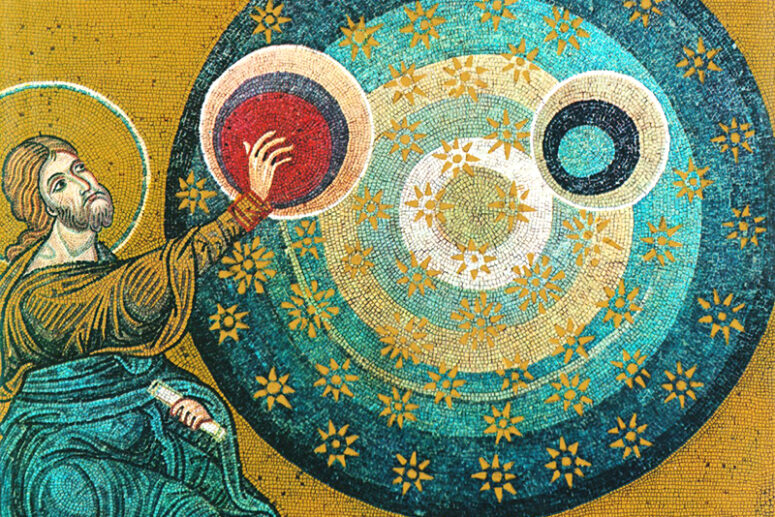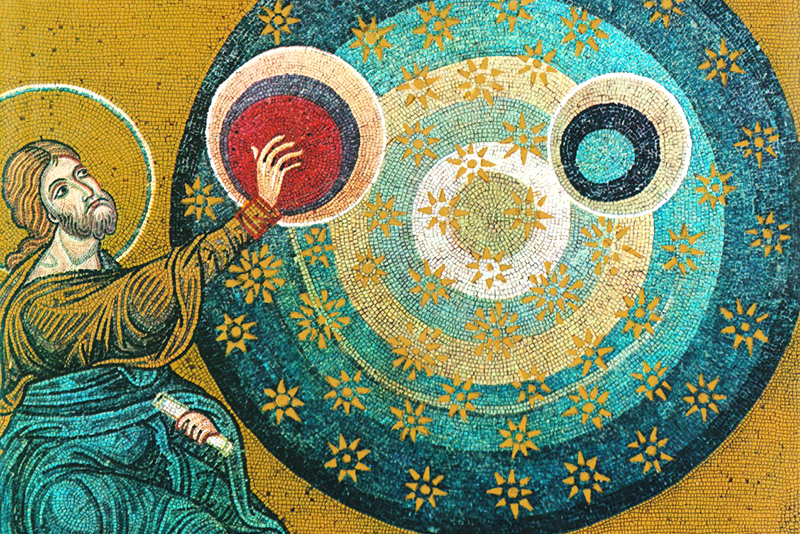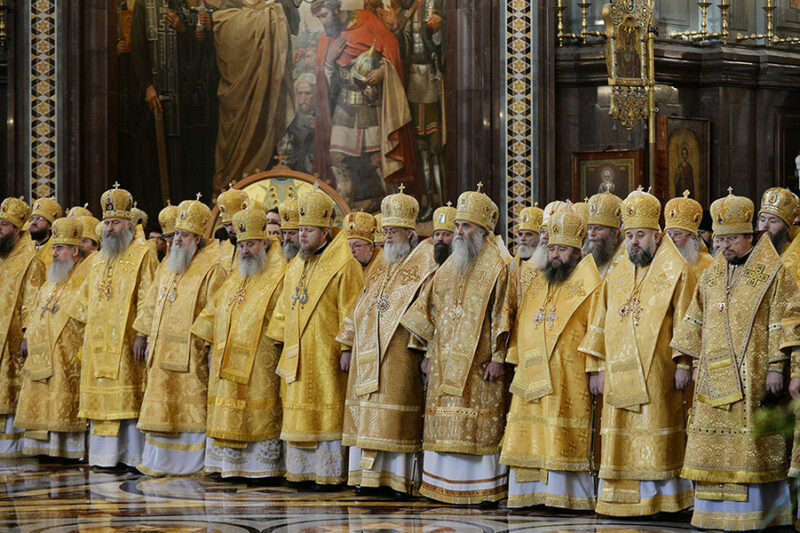
The clay tablets, discovered in 1849 in the ruins of the Ashurbanipal library, have caused much controversy among historians and biblical scholars. They contain the ancient Babylonian myth of the creation of the world, in many ways reminiscent of the biblical cosmogony. Presumably, the original text was written in 1900-1600 BC, which makes it several centuries older than the Pentateuch. This led some researchers to the conclusion that the biblical story of the creation of the universe is based not on divine revelation, but on the reception of an older pagan myth. For example, in 1903, the German assyriologist Friedrich Delitzsch declared that “the Old Testament poets and prophets had the impertinence to accredit the deeds performed by Marduk directly to Yahweh”. Let’s consider this myth in more detail.
The title and opening words of the poem (“Enuma Elish”) can be translated as “when up high”. The poem dwells on the genesis of gods and the entire universe, as well as the further arrangement of the earthly order of things. According to the poem, initially there was only water chaos, consisting of three elements: fresh water (Apsu), sea water (Tiamat) and fog (Mummu). From the primary element of Tiamat, the gods arose, giving birth to Anu, the god of the sky and Enki, the god of the earth. The appearance of so many gods agitated Apsu, and he decided to destroy the breakers of his peace. Enki, saving all the young gods, killed Apsu and captured Mummu. After this, Enki and Damkina, his spouse, give birth to the god Marduk. Marduk fought Tiamat and won by slicing her body in two. He uses them to create the expanses of sky and earth.
After that Marduk was engaged in arranging the dispensation of the universe, creating the stars, the moon and the sun. After conferring with his father Enki, he creates man from the blood of the defeated god Kingu, saying “May he serve the gods so that they can rest”. In the poem, the act of creation is called “an incomprehensible deed.” Then the gods erected a ziggurat (a structure of several tiers in the form of a pyramid) in gratitude to Marduk. Marduk laid aside his bow, serving him as a weapon of war, and everyone began to celebrate. The poem ends with the exaltation of Marduk.
The appearance of this poem is associated with the political rise of the city of Babylon and the resulting need to establish for the Babylonian god Marduk a special role in the creation and formation of the world. For this purpose, the poem “Enuma Elish” was read in the temple of Marduk during the New Year celebrations.
The similarities with the biblical account of the Сreation are obvious. The titles of the first five books of the Bible follow the same principle as the title of the Babylonian poem and match their opening phrases.
The order of the Creation is almost identical: from the originally single whole (the tehom abyss in the Bible, and the goddess Tiamat among the Babylonians), heaven and earth originate (in the Bible God creates them, while in Enuma Elish Anu and Enki are born). Some similarity can also be traced between the creation of dry land by God through separating the waters and the splitting of Tiamat by the god Marduk. Both sources offer similar descriptions of the creation of the celestial bodies.
The creation of man in the Bible is preceded by the so-called “counsel of God.” Similarly, in the Babylonian myth, Marduk consults with Enki. Finally, in both stories, the Creation ends with divine rest.
As mentioned previously, all these surprising similarities provoked a mostly derogatory assessment of the Holy Scriptures by researchers. However, a deeper analysis of these texts points to some fundamental differences between them. Let’s consider the most important of them:
1. Biblical cosmogony does not imply polytheism. “The God of Israel,” writes the Israeli biblical scholar and historian I. Kaufman, “has neither genealogy, nor parents or offspring; He does not inherit his power from anyone and does not bequeath it to anyone … He has no sexual characteristics or desires, just as He has no need or dependence on any forces outside of Himself”. Although the polytheistic culture of the tribes living in the immediate neighborhood of the Jews had some influence on the form of presentation of the passages in question, the writer of Genesis deliberately adheres to strict monotheism. For example, the Bible emphasizes the ministerial character of the heavenly bodies without using their names because they are similar to the names of pagan deities.
2. The biblical God does not fight his peers for world domination. Yahweh is the only Creator. The whole Universe obeys only His word. He creates according to His good will, which has nothing to do with any battles in the world of gods.
3. In the Bible, there is no matter, pre-existent to God. The Creation takes place solely in accordance with His word, which does not need to influence anything. God creates the very first matter, which emphasizes His absolute power.
4. In the biblical story, man holds a very special place. The entire universe is created for the sake of man, the image and likeness of God. Emphasizing human exceptionality, God allows man to give names to animals and birds. A person becomes an accomplice in the creative activity of God or, in the words of E. Galbiati and A. Piazza, “works together with God on the final arrangement of the world”. In the Babylonian poem, man is created to serve the gods and to work for them.
5. The biblical story of the creation of the world does not have ethno-territorial limitations, whereas the Babylonian myth is mainly a guarantor of the preservation and renewal of essential social phenomena.
Comparing the ideological content of the biblical story of Creation with the Babylonian poem, as well as other similar Middle Eastern stories, invariably leads us to the recognition of the uniqueness of the biblical story. According to deacon B. Bondar, “behind the similarity of the literary form lies a striking dissimilarity of religious content, impossible within the boundaries of the natural evolution of universal human thought. The latter can only be explained by supernatural interference in the history of the people”.




